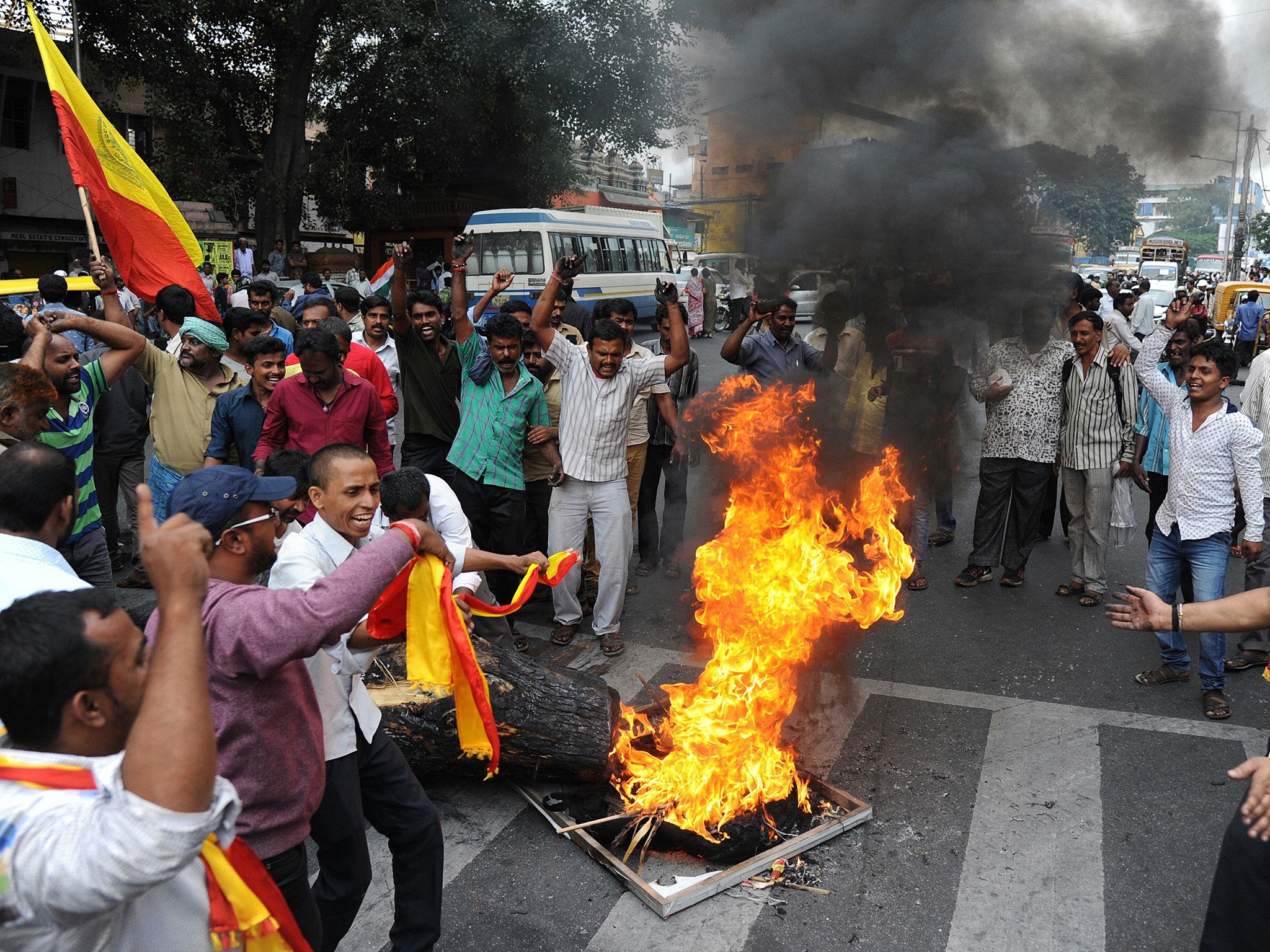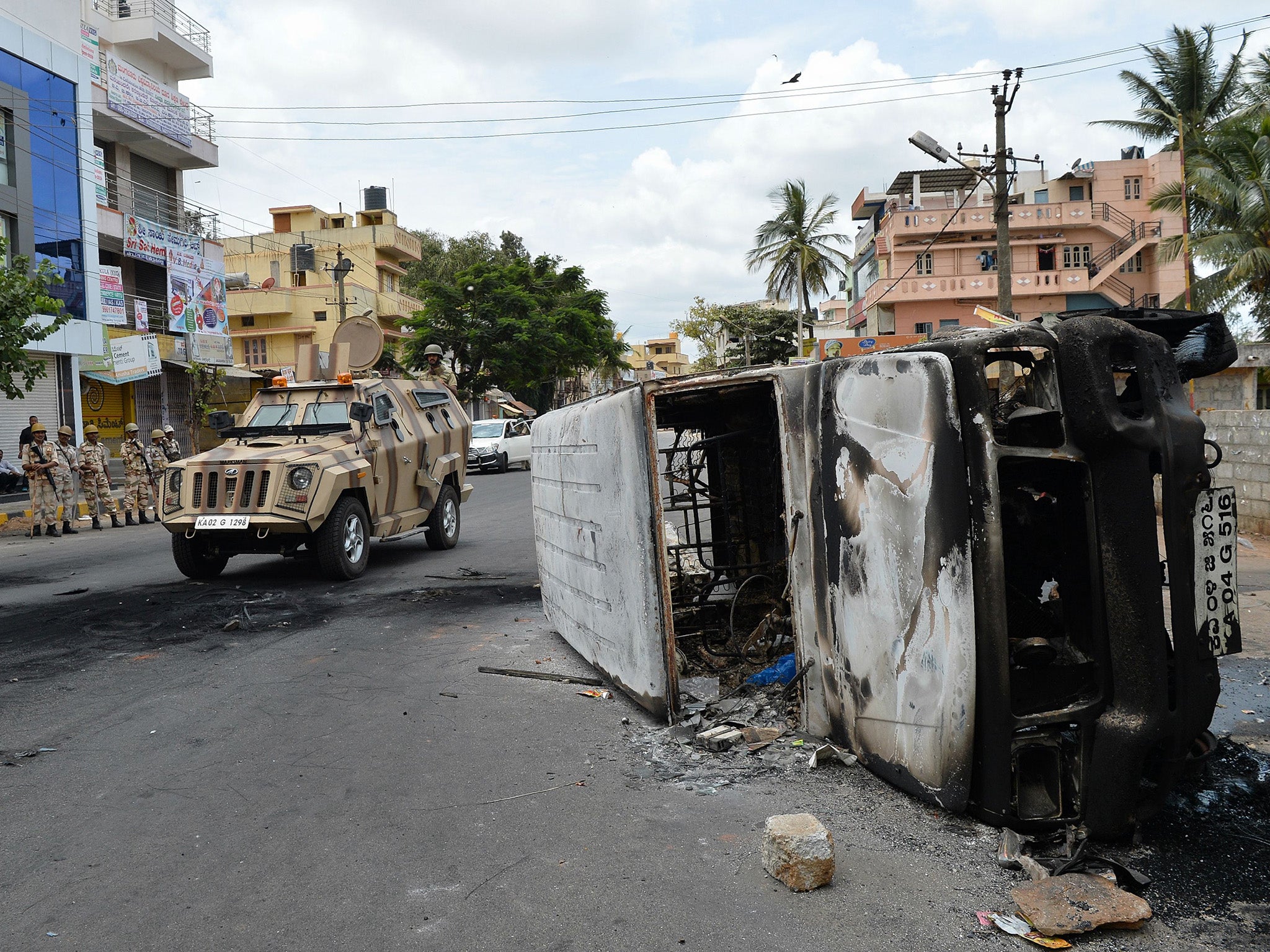Why two Indian states have started rioting over water
Disorder comes after Supreme Court orders state to release 12,000 cubic feet per second of water to its neighbour
Your support helps us to tell the story
From reproductive rights to climate change to Big Tech, The Independent is on the ground when the story is developing. Whether it's investigating the financials of Elon Musk's pro-Trump PAC or producing our latest documentary, 'The A Word', which shines a light on the American women fighting for reproductive rights, we know how important it is to parse out the facts from the messaging.
At such a critical moment in US history, we need reporters on the ground. Your donation allows us to keep sending journalists to speak to both sides of the story.
The Independent is trusted by Americans across the entire political spectrum. And unlike many other quality news outlets, we choose not to lock Americans out of our reporting and analysis with paywalls. We believe quality journalism should be available to everyone, paid for by those who can afford it.
Your support makes all the difference.At least one person has died and another has been wounded in riots over water in India.
Protesters set fire to cars and buses and pelted people with stones in the Indian city of Bangalore in Karnataka state, senior police officer L. Chandrashekar said.
The unrest was over an Indian Supreme Court decision to force the state to release 12,000 cubic feet of water per second per day from its dams on the Cauvery river to the neighbouring state of Tamil Nadu until 20 September.
The decision has led to outrage among people in the technology hub - dubbed the country's answer to Silicon Valley - as the state said it does not have enough water for farmers to irrigate their land as it is.
Riot police were deployed and all public gatherings have been banned in a bid to combat the unrest. Around 400 people have been arrested.
Young men crammed into mini-buses and rickshaws were seen shouting slogans and waving the red and yellow flag of Karnataka state. They pulled several Tamil Nadu-registered trucks and motorcycles to the side of the road and pelted them with stones.
The disorder has severely disrupted travel between the two states.
In one incident in the Banashankari area of southern Bangalore, three reportedly drunken men climbed onto a school bus and demanded to know which state the 15 children onboard belonged to.

The bus driver was able to diffuse the tension by saying they all supported Karnataka in the water dispute, the BBC reported.
The dispute dates back to the 19th century during the British Raj when the Madras presidency (Tamil Nadu) and the province of Mysore (Karnataka) argued over the river which originates in Karnataka and flows through Tamil Nadu before ending in the Bay of Bengal.
There have been outbreaks of violence before and an interim court order provoked violent attacks on the Tamil ethnic minority in Karnataka which left more than 18 people dead in 1991.
But the argument has reached crisis point in recent months as India faces yet another drought caused by late monsoons.
Karnataka argued in court that it needed the water to irrigate the land as 42 per cent of its tanks were already dry.
When the Supreme Court asked Karnataka to relent on 2 September it offered to release 10,000 cubic feet of water per second every day for five days but on 5 September the court ruled it must go up to 15,000 per second every day for 10 days.
This decision was later revised to 12,000 per second.
The lack of water across several west Indian states such as Rajasthan, Maharashtra and Gujarat has been blamed for a spike in farmer suicides as the temperature rises.
Hundreds have died from starvation as crops wither in the fields.
In May, a farmer near the city of Latur in Marathwada where water is brought in by train said: “It's an extremely bad situation.
“There's absolutely no water. The water dried up in January.”

On 20 May, the country recorded its highest ever temperature with the mercury reaching 51C (123.8F) in the city of Phalodi in Rajasthan.
Climate change is thought to be partly responsible for the delayed onset of Monsoon season with the added effect of the El Nino weather pattern which causes extreme hot and cold weather and occurs naturally every two to seven years.
Late last year, at least 269 people were killed by flooding in the city of Chennai in Tamil Nadu.
Additional reporting by Reuters

Join our commenting forum
Join thought-provoking conversations, follow other Independent readers and see their replies
Comments